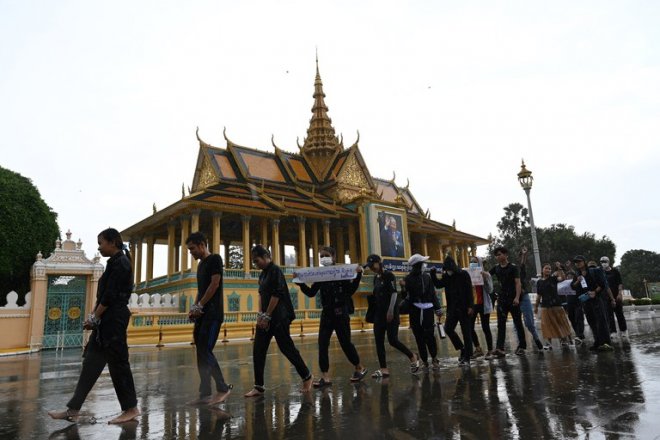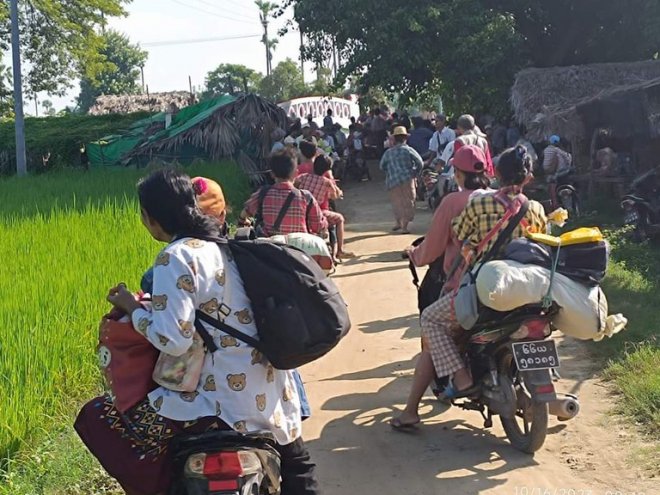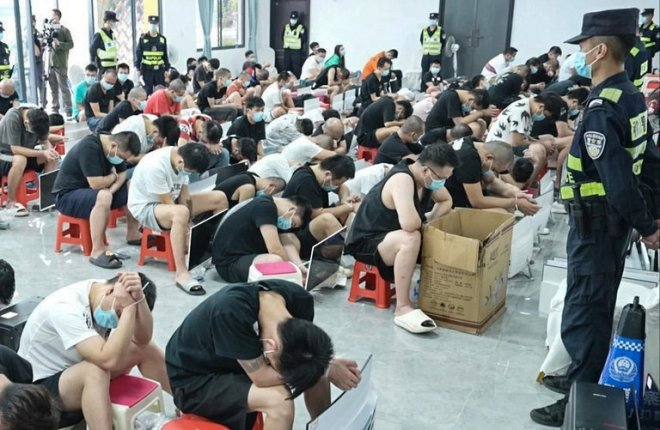Tibetan street vendors in Lhasa targeted amid 'clean up' the streets campaign
China has increased video surveillance and inspections of street vendors in and around the Tibetan capital of Lhasa in an effort to clean up the city, though sources inside the autonomous region say the measures are meant to get Tibetans hawkers off the streets.Local authorities began implementing the “Clean Up Lhasa” campaign on March 20 in the city of about 560,000 people in which they are inspecting all street vendors in and around the Jokhang Temple [or] Tsuglagkhang,” said the sources who declined to be identified for safety reasons.
Tibetans consider the four-story Buddhist temple in Lhasa’s Barkhor Square as the most sacred and important temple in the Tibet Autonomous Region.
Chinese authorities are also prohibiting Tibetan vendors who sell tsampa, a Tibetan staple food made of barley, sha-kampo, or dried yak and sheep meat, and other edibles, alleging that they do not have proper food badges on them, said a Tibetan inside the region.
“Though the Chinese government has implied that the campaign is aimed at keeping the city of Lhasa clean, one can see that only Tibetan vendors are targeted under this campaign,” he told Radio Free Asia.
Authorities also are telling Tibetan street vendors to stop selling CDs of Tibetan songs and are interrogating them for no reason, the source added.
“This has caused so much trouble for Tibetans who make their living as street vendors,” he said.
Increased scrutiny
China maintains a tight grip on Tibet, restricting Tibetans’ political activities and peaceful expression of cultural and religious identity as Buddhists. Tibetans frequently complain of discrimination and human rights abuses by Chinese authorities and policies they say are aimed at wiping out their national and cultural identity.
The latest move follows increased security measures in Lhasa and other major towns ahead of recent politically sensitive anniversaries during which police randomly checked individuals and their cell phones for contact with people outside the region.
“Eventually under all these campaigns, the Chinese government wants to eradicate or eliminate any place or business that caters to bring the Tibetan brotherhood together,” said Gyal Lo, a Tibetan academic and author of the 2021 book Social Structuration in Tibetan Society: Education, Society, and Spirituality.
So far, authorities have interrogated nearly 30 street vendors under the “Clean Up Lhasa” campaign and will continue to inspect hawkers, according to information on the Lhasa Police’s website.
“Some of the street vendors continue to sell their stuff because this is their livelihood,” another Tibetan source said.
Others who tried to confront Chinese authorities have been detained, though there was no information about those arrested or where they are being held, he said.
“The Chinese government is trying to take away the only source of income for many of these Tibetan vendors under the guise of such campaigns,” he said.
A possible motive for the campaign is that the Chinese government wants to maintain its claim that it has improved Tibet’s economic development, given that Lhasa is a tourism hub, said Xiang Xiaoji, a Chinese attorney based in New York.
“They don’t want the tourists to see Tibetans on the street as vendors,” he told RFA. “They want to portray that Tibetans are living good and financially content lives.”
Translated by Tenzin Dickyi for RFA Tibetan. Edited by Roseanne Gerin and Malcolm Foster.
[圖擷取自網路,如有疑問請私訊]
|
本篇 |
不想錯過? 請追蹤FB專頁! |
| 喜歡這篇嗎?快分享吧! |
相關文章
AsianNewsCast






















